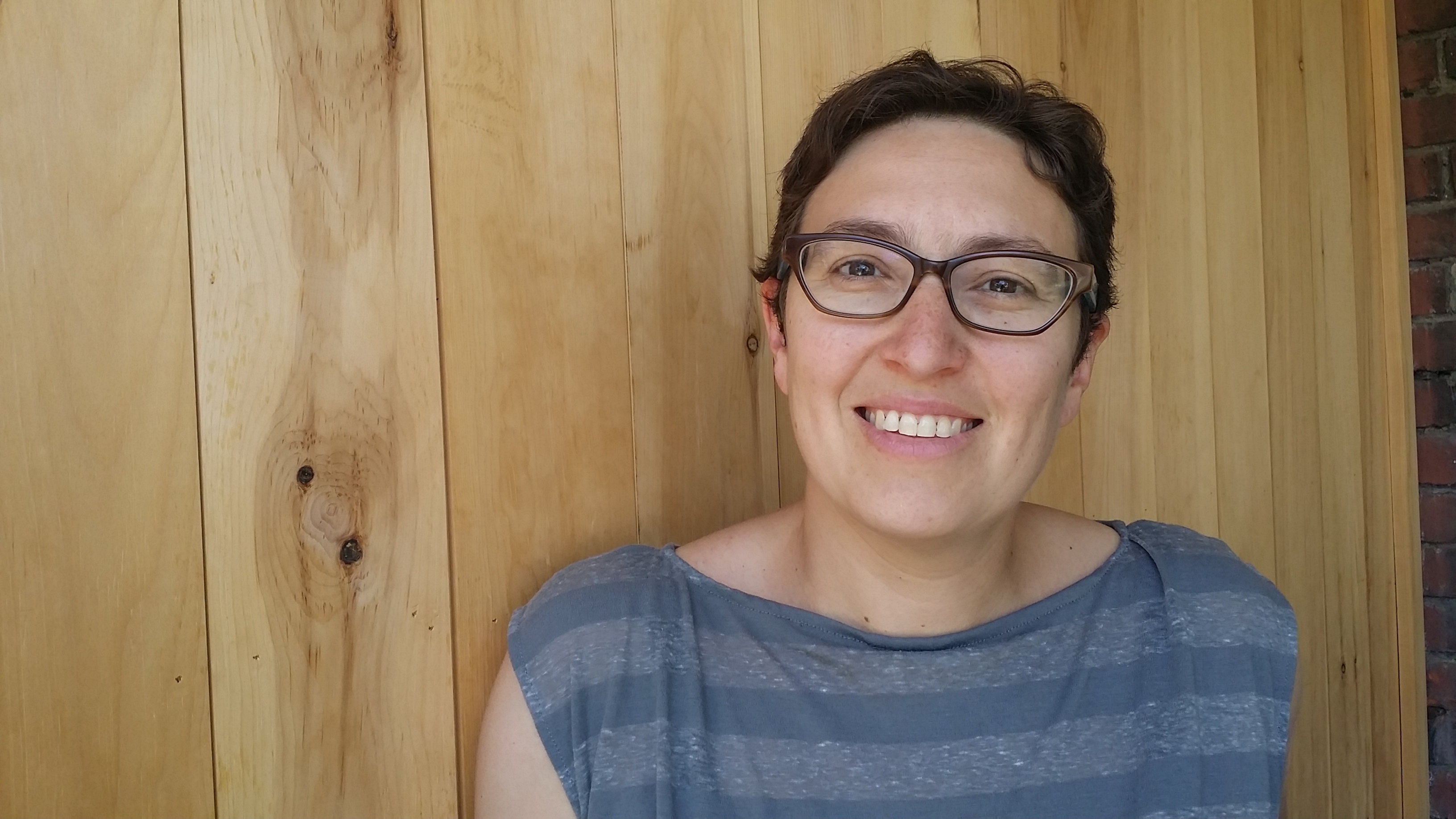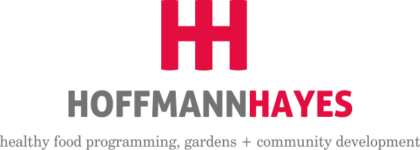In this Food Makers & Changers interview, we get to know Linor David, Program Manager at Community Food Centres Canada!

About Linor:
Linor David currently works as Program Manager at Community Food Centres Canada where she helps develop Community Food Centres across the country. She has worked as a health promoter in the areas of women’s health, environmental health and food security. At the Stop Community Food Centre she coordinated their perinatal program and at Queen West Community Health Centre she developed programming related to gardening and mental health. She teaches at Centennial College in the Community Services department and is completing her MEd in Adult Education and Community Development at OISE. She’s got two kids that keep her busy and she loves playing soccer and biking around doing all kinds of errands with her long tail bike.
What is one change you’d like to see happen within the food system and why?
I think the change I’d like to see is more far reaching than just the food system. Right now if you have enough income you can participate in some of the most amazing aspects of our food system, you can eat fresh organic local fruits and vegetables. You can roam your local farmer’s market and feel part of a community built around sustainability, healthy environments, and wellness. But if you don’t have enough income you are cut off from those being able to make choices about how you want to participate in the food system. I’d like to see everyone with enough income that they don’t have to worry about what they will eat next.
If you could only have three vegetables for the rest of your life, what would they be and why?
Kale- saute it with some garlic and it is perfect (to me)
Sweet potatoes- in soup, mashed, as fries- the possibilities are endless
Really good carrots- Crunchy and sweet and fresh (and you can cook them too)
What has been your most meaningful and rewarding work to date?
After working front line for many years, coming to Community Food Centres Canada was a big shift! It has been a great experience to be part of supporting the Community Food Centres to reach their goals and to work with Good Food Organizations across the country. Right now I’m so excited that after a year and half of community consultations, construction, and fundraising, we are welcoming The Alex Community Food Centre in Calgary as our second Western Canada Community Food Centre.
If you could only have one non-local food for the rest of your life, what would it be?
Mangos. I generally try to eat locally and I don’t mind waiting for summer for strawberries, but mangos (and avocados) are practically staples at our house.
Where do you stand on local vs organic vs simply eating whole foods? What are your personal priorities when it comes to your own diet?
I was influenced by macrobiotic cooking and I love the simplicity of that diet- whole grains, simple proteins and a bunch of veggies. I’m still waiting to get bored of it! I try and feed that mix of foods to my kids- they like most fruits and vegetables as long as they aren’t prepared in a stew like fashion.
I think eating lots of vegetables and fruit is more important than always having organic and local food. We are so lucky in the downtown core to have so many green grocers that we can shop from. When it comes to buying local and organic foods I like shopping at Sorauren Market or the West End Food Coop- maybe obvious to those of you who know my partner Ayal Dinner!
Who do you most admire in the food movement?
These days I am paying a lot of attention to the work of WhyHunger in the United States. They are so political, and so oriented towards the connection of social justice and the food movement. They work nationally and they really use their platform to amplify voices that get left out of the mainstream discourse about food.
What is your favourite season and why?
Spring! Flowers, warmth, seedlings at the market, too much asparagus, and no snowsuits for the kids!
What do you daily or weekly to try and be a part of the solution when it comes to creating a sustainable food system?
I think the biggest thing that I try and do daily is cook food from scratch. The industrial food system would love us all to be eating processed food all the time. There is obviously a pull towards that because it is convenient for a parent who works full time to not have to cook on top of it all. But by cooking meals from scratch I create less waste, my food doesn’t travel that far, and we eat more simply.
What is one of your favourite memories of eating in community?
I feel passionate about eating in community! One of the things that happen at Community Food Centres is that people get to sit down together to enjoy a healthy and delicious meal, served in a welcoming space. People meet over food, connections are made, and over time people begin to feel like part of the community. We know that loneliness is a problem in our society, but we are starting to learn how important eating with people is to feeling connected. We’ve been exploring this topic of social isolation and the very real health implications of it and how food can be such a powerful way of bringing people together.
I’m lucky to be surrounded by family at home, and great colleagues at work to share meals with on a daily base. Some of my happiest memories of eating in community were meals shared in collective house I lived with at 99 Galley St — there were always interesting guests visiting and lots of laughter, art, activism, and rice!
A quick summary of your approach to community development
I like taking the approach of firstly, doing a lot of listening and paying attention. I say paying attention because it is easy to miss the people who you aren’t seeing and hearing on a regular basis- and that is some of the most important work- finding out what is keeping people away, why aren’t they visible, what would things need to look like to have them participate. Secondly- I think that knowledge is powerful, and that teaching people and helping them contextualize their own experiences is often the missing link for folks. The last part of my approach to community development is empowering people to do what they feel needs to be done themselves. That’s tricky- you need to give people enough support to succeed but also leave them with the capacity to do things on their own.
I think Regent Park Community Food Centre is doing some really amazing community development work with their food programs- they’ve partnered to create a bake oven ambassador program where newcomers are learning to bake at the bake oven and will be churning out delicious flatbreads and more during the summer. At their Taste of Regent Park market you can eat seriously great meals prepared by local neighbors who are mastering the art of catering through cooking in the Regent Park CFC commercial kitchen.
Favourite junkfood?
The brownies at Homebaked!
This post is part of the HH Food Makers and Changers series, introducing you to friends in the food community that are making a big difference.
